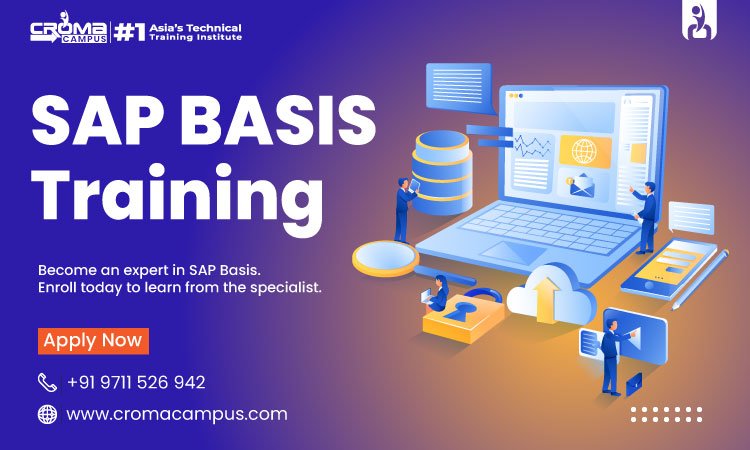Introduction
Effective management of clients, Remote Function Calls (RFCs), and instances is crucial for maintaining seamless operations in SAP systems. This process ensures that SAP environments are efficiently configured, securely accessed, and properly maintained. For professionals looking to excel in these areas, an SAP BASIS Course offers comprehensive training, while certification validates their expertise in managing SAP systems.
1. Managing SAP Clients
In SAP, clients are used to segregate data within the same SAP system, allowing for different environments such as development, testing, and production. Proper client management ensures data integrity and security across various stages of the system lifecycle.
Aspects of Client Management:

- Client Creation and Copying: Creating and copying clients to establish new environments or for testing purposes.

- Client-Specific Data Management: Handling data that is specific to a client and ensuring consistency.
- Client-Specific Customizations: Implementing customizations and configurations for each client.
2. Managing RFCs (Remote Function Calls)
RFCs are used to enable communication between different SAP systems or between SAP and non-SAP systems. Proper management of RFCs is essential for ensuring that inter-system communications are reliable and secure.

Aspects of RFC Management:
- RFC Destination Configuration: Setting up and maintaining RFC destinations to connect with other systems.
- Monitoring and Troubleshooting: Ensuring that RFC connections are operational and addressing any issues that arise.
- Security Management: Configuring and managing security settings to protect data transmitted via RFCs.
Distribution of RFC Types in SAP

3. Managing SAP Instances
SAP instances are individual components of an SAP system that perform specific functions. Proper management of instances ensures that the SAP environment operates smoothly and efficiently.

Aspects of Instance Management:
- Instance Configuration: Setting up and configuring instances according to system requirements.
- Instance Monitoring: Regularly monitoring instance performance and health.
- Instance Updates and Upgrades: Applying patches and updates to keep instances current.
4. Training and Certification
For those seeking to deepen their knowledge and demonstrate their expertise in managing SAP environments, an SAP BASIS Course provides comprehensive training on these topics. This course covers everything from basic client management to advanced RFC configurations and instance handling.
The certification is a recognized credential that validates a professional’s ability to effectively manage SAP systems. SAP BASIS Certification ensures that individuals have the skills needed to handle complex SAP landscapes, ensuring smooth and efficient operations.
Popular SAP BASIS Topics

Achieving certification is a significant milestone for professionals aiming to specialize in managing SAP systems. SAP BASIS Certification not only validates a deep understanding of SAP infrastructure but also equips individuals with advanced skills in system administration, client management, and security protocols.
- System Configuration: Detailed knowledge of configuring SAP systems to meet organizational needs.
- Client Management: Expertise in managing different clients within the SAP environment, ensuring data integrity and consistency.
- RFC and Communication Management: Proficiency in setting up and maintaining Remote Function Calls (RFCs) to enable seamless communication between SAP systems and external applications.
- Instance Management: Skills in managing various SAP instances, including their setup, monitoring, and maintenance.
Pursuing certification through an SAP Course provides hands-on experience and theoretical knowledge required to pass the certification exam. This structured training ensures that candidates are well-prepared to handle complex SAP environments efficiently. Certified professionals are better positioned to contribute to their organizations by optimizing SAP operations, thereby enhancing overall system performance and reliability.
Best Practices for Effective Management of Clients, RFCs, and Instances
To ensure seamless operations in SAP environments, adhering to best practices for managing clients, RFCs, and instances is crucial. Regularly review and update client configurations to maintain data integrity and alignment with organizational needs. Implement robust monitoring tools for RFCs to detect and resolve issues promptly, ensuring reliable inter-system communication. For instance, management establishes a routine for performance checks and applies patches and updates as needed. By following these best practices, you can enhance system stability, improve operational efficiency, and mitigate potential disruptions, leading to a more resilient and effective SAP infrastructure.
Conclusion
Managing clients, RFCs, and instances effectively is vital for maintaining seamless operations in SAP systems. By understanding and applying best practices in these areas, professionals can ensure that their SAP environments are well-configured, secure, and efficient. Enrolling in a course and obtaining certification are crucial steps for anyone looking to excel in this field, providing both the knowledge and the credentials necessary for successful SAP management.


